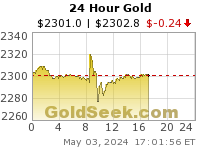- In the past some things were cheap enough WB could decide in a day (this was somewhat a function of a time period where companies would sell at 2-3x earnings)
- Decisions should be obvious to onlookers. You should be able to explain why you bought something in a paragraph.
- “I don’t do DCF” (WB says he does a rough approximation in his mind)
- Finding ideas is a function of cumulative knowledge over time. Something just comes along - usually an event takes place, like a good management team screwing up that creates the opportunity (WB seems to imply here that his reading isn’t specifically targeted at finding ideas, but rather that ideas jump out at him as a natural consequence of vociferous reading)
- You must be patient...good ideas tend to be clustered together, and may not come at even time intervals...when you don’t find anything for a while it can be irritating
- WB isn’t bothered by missing something outside his circle of competence - Missing things inside the circle is nerve racking...examples include WMT, FNM
- Source: Buffett Vanderbilt Notes
- URL:
- Time: Jan 2005
[When asked about the relative attractiveness of bonds, arbitrage, etc., Buffett replied:]
Charlie and I are competent to make judgments on certain things, and not other things. We try to focus on what we can understand, which is a reasonable amount.
In the summer to mid-fall of 2002, when junk bonds became very attractive, we bought a lot. But we did not make a big decision to buy junk bonds – it’s just that a lot of them got really cheap.
We have an open mind – whatever we see on a given day that overcomes our resistance to take risk, we’ll do. Charlie and I do not have a checklist to prioritize categories. I hope he gets a good idea, he hopes I have one and if we find one, then we move, hopefully in a big way. It has to be big.
We’re recently made big investments in currencies and viatical settlements. We don’t do arbitrage any more because we’re too big.
[CM: We have a lot of cash because we don’t like any of those fields at the moment. Trying to prioritize among things we’re unlikely to do is pretty fruitless.
- Source: BRK Annual Meeting 2004 Tilson Notes
- URL:
- Time: 2004
[Q - How do you get better at valuing companies?]
WB: Very very good question. I started out not knowing anything about valuing companies. Ben Graham taught me a way to value certain type of business, but the selection of available companies dried up. Charlie taught me about durable competitive advantage. Not how big circle of competence is, but knowing where the edges are is most important. Think about businesses in your own home town. Ask questions about the businesses. Which do you want to buy into, which are hard to compete with, talk about businesses with people. What is working, what is not? You have to ask. You would be surprised at how many companies I know nothing about. The goal is to find companies that will be around for 20 years and offer a margin of safety. You have to recognize your limitations to be successful in this business. 6-7yrs ago I looked at Korean stocks, and I could see a number of businesses that met margin of safety. I bought 20 and diversified.
CM: Obviously if you want to get good at something which is competitive, you have to think about it and practice a lot. You have to keep learning because world keeps changing and competitors keep learning. You have to go to bed wiser than you got up. As you try to master what you are trying to do – people who do that almost never fail utterly. Very few have ever failed with that approach. You may rise slowly, but you are sure to rise.
WB: When did you start valuing businesses?
CM: I never took a business class, except accounting. When I was a boy, there was a man who came to the club every day at 10:30am. I asked my dad about him – he had such a good life! My Dad said, “He gathers up and renders dead horses.” I learned from that. Many businesses are sold under distress. Life is hard to get near top, and hard to hold position once attained. I think you could predict that Kiewits would win, they cared more. I would not have bet on anyone else. Half Dutch half German – and that is coming from me, I’m named Munger. I was automatically doing it – what was working and what wasn’t. If you have that temperament, you will gradually learn. If you don’t have that temperament, I can’t help you.
WB: Avoiding the dumb things is the most important. Learn more, know limitations, avoid the dumb things. Charlie often thought about his client’s business. He was incapable of thinking about a business without noticing the fundamental economics.
CM: I had a client who sold a Caterpillar dealership business for a crazy price to an oil business. The oil business had consultants and a concept and a strategy!
- Source: BRK Annual Meeting 2010 Boodell Notes
- URL:
- Time: 2010


投资的关键不在于你有多少钱,过去的历史如何,而在于你是否能坚持独立思维。
ReplyDelete不管对方多有权势,多有内幕,你是否能坚持自我独立思考,除非你能知道对方如何分析的企业并且为什么买入,什么时候卖出,否则你就必须目中无人只信自己。
一个不知道为什么买入,也不知道为什么卖出,只是看到账户的成本为负就认为这是高手并且认为价值投资就是如此的话,那缺少的不是经验和技巧而是性格。
好的价值投资者并不是哪些没有犯过错误的人。好的价值投资者的最典型特征是从很多年的历史来看犯错误(尤其是大错)的概率很低。
ReplyDelete好企业和好价格是一个硬币的两个面,缺一不可,都重要。
ReplyDelete2年10几倍的股一大堆,不看中企业价值谁能拿10倍,这些股每次的调整都有20-30%.做趋势早就被洗掉了.
ReplyDeleteThese watches are designed to be loud and attractive. With the advent of the
ReplyDeletedigital age, a lot of processes have been digitized.
Keeping up with the demands of the individuals and
the pace of the rapidly developing industry, the
watch manufacturing brands like the Obaku are coming up with brilliant options
that combine simplicity, shape and texture.
Here is my web page armani exchange watch